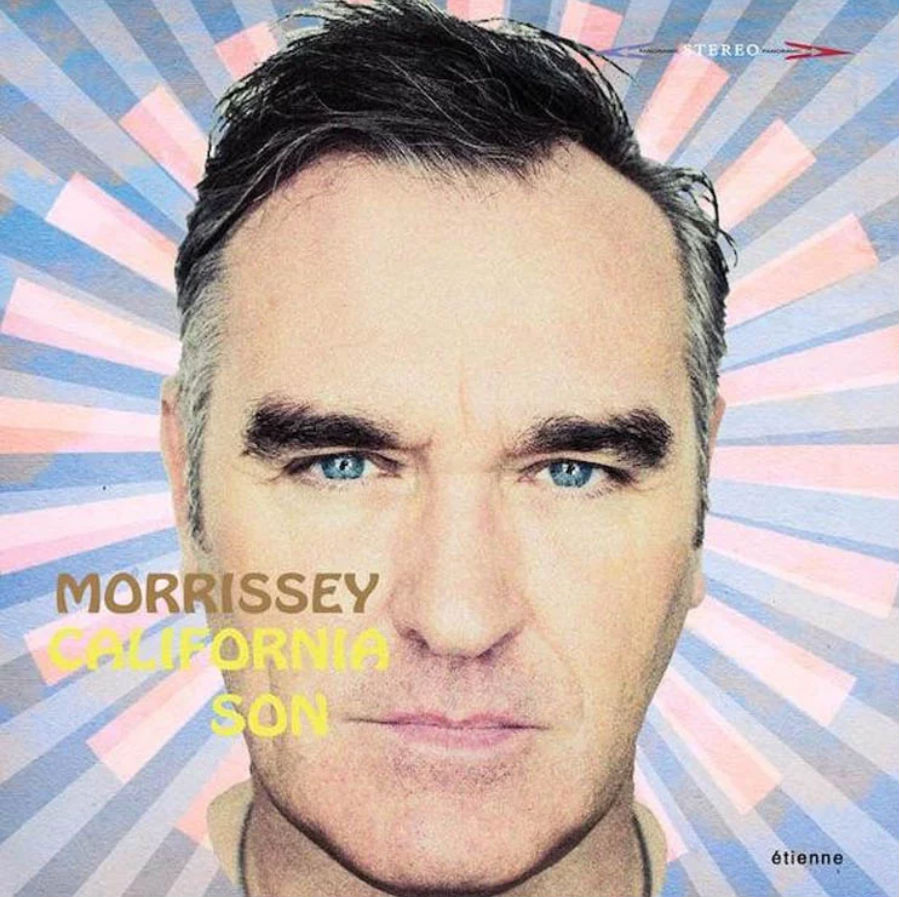ICYMI – Morrissey is cancelled. Again.
Ex-fans have been performatively falling over themselves to denounce him on social media, metaphorically burning his albums and declaring him finished. Attention-seeking record shops have banned his wares. Lily-livered transport companies have pulled his promotional posters as if the mere sight of his face were a hate crime. It’s like the Sex Pistols and Public Enemy all over again, only this time it’s The Kids censoring The Man for being a threat to society.
But ’twas ever thus where Moz is concerned. He gets to people, for good or for bad. Fans are invested, far more than is emotionally wise, in their own constructed image of him, and when he fails to conform to it, they flip. This time, the last straw for people was the wearing of a For Britain badge. But there’s been so many previous last straws, it’s hard to keep track. A case of cry wolf? No, this time they really, really mean it. Seriously. He’s gone too far this time. He really has. That’s Morrissey over. That’s teenage memories ruined. (We all know they’ll miss him when he’s gone).
With his stock so low, it would be convenient (not to mention great for web traffic) to report that California Son is the career-ending joke of an album some people would like it to be. Equally, it would be hilarious (and even more clickbaity) to be able to report it’s an against-the-odds flick-the-vs triumphal restatement of his singular artistic vision. The rather more mundane reality is it’s a so-so covers collection that ranges from the laughable to the not-at-all bad. Self-indulgent and self-conscious – would you expect anything less? – but full of slightly off-the-beaten-track curios that may have passed you by. Like a Late Night Tales compilation with Moz karaokeing the whole lot.
The first track to leap out – now he’s Britain’s leading neo-Nazi and all – is Dylan’s civil rights anthem, Only A Pawn In The Game, about the murder of activist Medgar Evers. Musically, it’s been jollified with a thumping, martial beat and a Cajun middle-eight, but it’s the lyrics that will raise the eyebrows, and not for the reasons he has recently been raising them. “A South politician preaches to the poor white man / ‘You got more than the blacks, don’t complain / You’re better than them, you been born with white skin,’ they explain”. In other words, politicians stoking racial grievances for their own ends – the exact thing he’s being decried for supporting and here he is criticising it. Go figure!
In fact, there’s enough other protest music here to suggest a deliberate strategy. There’s Buffy Sainte-Marie’s Suffer The Little Children with its critique of the way we indoctrinate our children – “Teach them that evil dwells across the sea… teach them not to criticize, say ‘yes’ to bosses, impress the clients” – which, like the Dylan number, has been de-folked and glammed up reasonably effectively and gives us the comical sound of Morrissey crooning “Did you think he was a boogeyman?” There’s Phil Ochs’ Days of Decision with its lamentations about “many a cross that burns in the night” and “mobs of anger roaming the street”. If he has gone the full Tommy Robinson, he has a funny way of showing it with this leftie peace ‘n’ love vibe. Will detractors listen long enough to forgive him again? Or will they assume at this stage he must be taking the piss?
Either way, it’s not all 60s Greenwich Village on this album.
Late glam rock star Jobriath has long been a cause-célèbre of Morrissey’s, but one perhaps known more by reputation than by music. His Morning Starship makes a bright opener, similar in mood and tone to America Is Not The World from You Are The Quarry. Less groovy and more restrained than the original, it also betrays the album’s true Achilles’ heel – a tendency toward cheesy Mike Flowers Pops-ification. It’s a disease that particularly infects Laura Nyro’s Wedding Bell Blues and Dionne Warwick’s Loneliness Remembers What Happiness Forgets, on which Moz gives one of the soul greats the 80s Costa Del Sol lounge singer treatment.
He’s less damaging to the Big O’s It’s Over, though on balance it was still a risky manoeuvre. One sees the draw of the song, of course – one of the most emotional performances ever committed to vinyl, a heart-breaker of the highest order. But it accepts no half-measures and he bottles the climax, after clinging on with a beautiful fragility to the penultimate line. It’s like watching a triple-jumper nail the first two steps only to give up and jog tamely into the sandpit for the finale. Go hard or go home, and in this case, it should probably have been the latter.
There are definitely better musical modes for the sexagenarian Moz to be dealing in. Joni Mitchell’s Don’t Interrupt The Sorrow retains the loose, free-flowing melodic approach of its originator and suits him nicely, while Tim Hardin’s mournful Lenny’s Tune is a tap-in for such a noted miserabilist. It brings back memories of both his former band’s Asleep and his duet with Siouxsie Sioux on Interlude. The fact it can be mentioned in the same breath as those two classics is at least one feather in California Son‘s cap.
Unfortunately, the quality (or otherwise) of the actual music on California Son is a side-issue at this point. In keeping with the times, many more people will have strong opinions on the new Morrissey album than have actually listened to it. By all means stay clear if his politics churns your stomach that much, but California Son is like most of us, including the man himself – flawed, but not entirely unpleasant.
